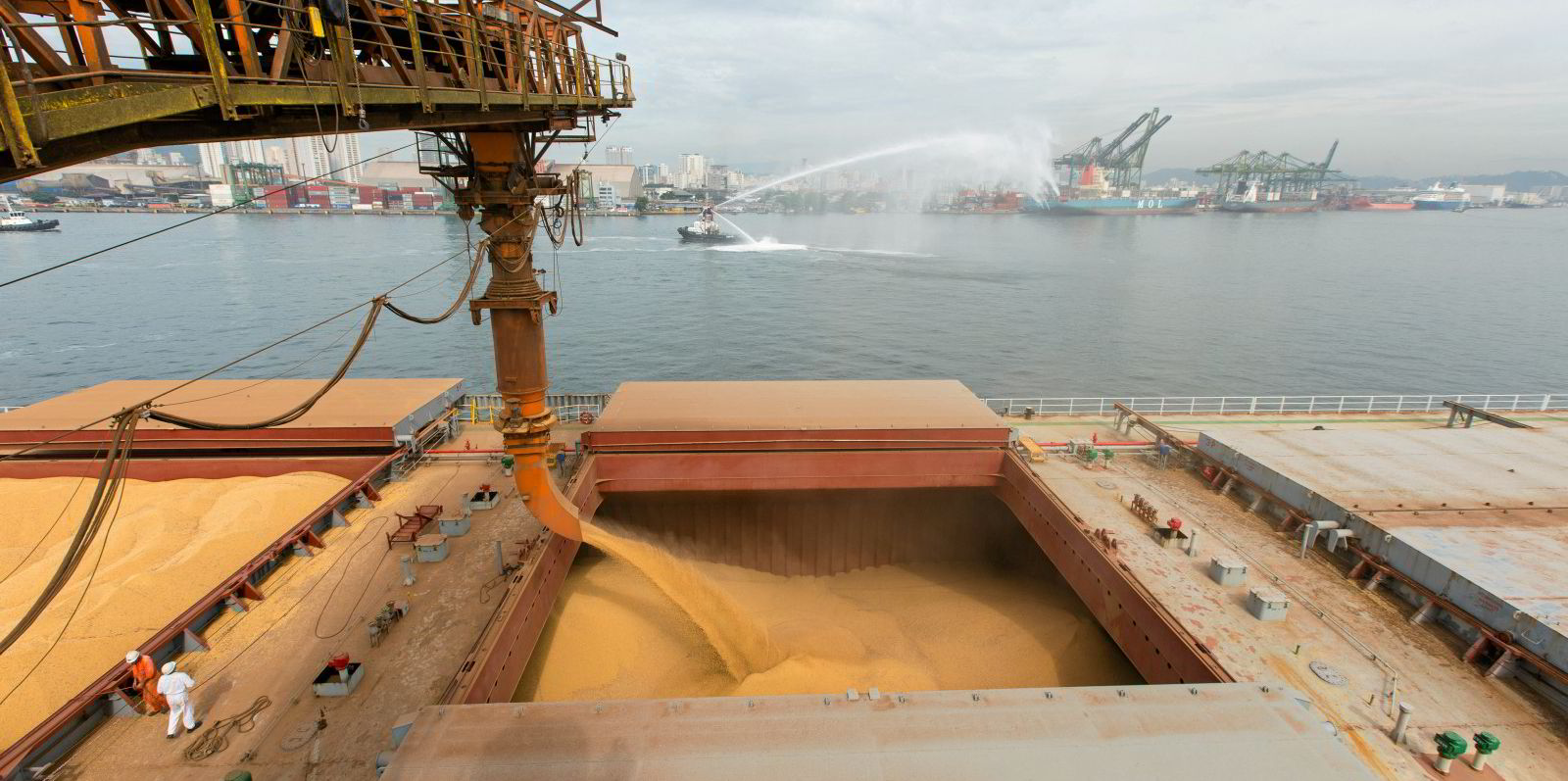This is expected to be a record year for South American soybean exports and Chinese grain imports, and research suggests that port congestion could hamper bulker supply and drive up freight rates.
Research by Arrow Shipbroking Group said port congestion in Brazil is already high and will get worse because bad weather will delay the soybean harvest by a "couple of weeks".
"There are already more vessels waiting in Santos [in Brazil] than at this time last year. So potentially as this queue climbs, so may rates," Arrow said in a research note on Monday.
"With the US export program in full swing, having plenty more cargoes on the books to export, the arrival of the South American harvest to ports over the coming months, albeit slightly delayed, looks set to provide a welcome thrust to the dry-bulk shipping market."
In particular, these delays will provide further support to the spot market for supramax and handysize bulkers, the London-headquartered shipbroker said in its note.
"Supras and handys have performed strongly in the past few months due to rebounding global manufacturing driving the minor bulk trade with rates now at comfortable levels," the Arrow research team noted.
Effects on panamax market
"Additionally a strong iron ore trade and a recovering coal trade are supporting the smaller vessel classes."
Seasonal port congestion in the first quarter usually affects panamax bulkers, which undertake longer-haul grain trades, as soybean exports from east coast South America pick up.
Arrow expects congestion to rise further, which will also affect vessel supply.
"Given the already large amount of inefficiency in the market due to many coal-carrying vessels being tied up in China and Indonesia, another impulse of inefficiency could further lift fleet utilisation and potentially cause a surprise tightness in market," it said.
"Supramax and handysize vessels are also experiencing seasonally high congestion."
Shortlived export boom
The US Department of Agriculture has forecast a record soybean harvest in Brazil of up to 133m tonnes this year, compared with 126m tonnes in 2020.
Arrow expects a natural uptick in exports but, it said, this will be short-lived.
"Volumes will not sustain throughout the year like in 2020 as stockpiles are very low," it said.
"In 2020 Brazil exported unseasonably large amounts as a weak Real incentivised farmers to maximise exports by selling all available soybeans, and therefore a repeat is not possible as stockpiles are now empty."
Added to this, there is "a real possibility" that a truck-worker strike in Brazil could become "crippling", having gained the support of two major unions.
"In 2018 there was a strike which crippled domestic supply chains and caused a large but short-lived drop in seaborne exports," Arrow said.
Grain supply and demand
This will be an even bigger year than 2020 for Chinese imports of grain, according to the broker.
"Domestic supply in 2020 was poor due to pests, typhoons and flooding damaging their crop," the research team explained.
"Corn from [China's] strategic reserves has been released throughout the year to plug any gaps, however this didn’t prevent the rally in domestic prices."
The price of imported corn fell compared with China's domestic supply during 2020, and US corn is now around half as expensive as China's homegrown produce.
But questions remain over the true quantity and quality of China's corn reserves, Arrow noted.
"Rumours have circulated that they are relaxing their tariff rate quota system to ease domestic tightness, albeit unofficially," it said.
Demand for grain is not expected to be a problem this year and exports are already running at high levels, according to Arrow.
"It’s clear China is going to play an even greater role in the global grain market this year, the record corn purchases in the past week are a sign of things to come, and indicate that imports are likely to continue to surprise to the upside," the broker said.
"In fact, strong US and Argentinian grain volumes have already pushed total grain tonnes shipped to a very high seasonal level."









